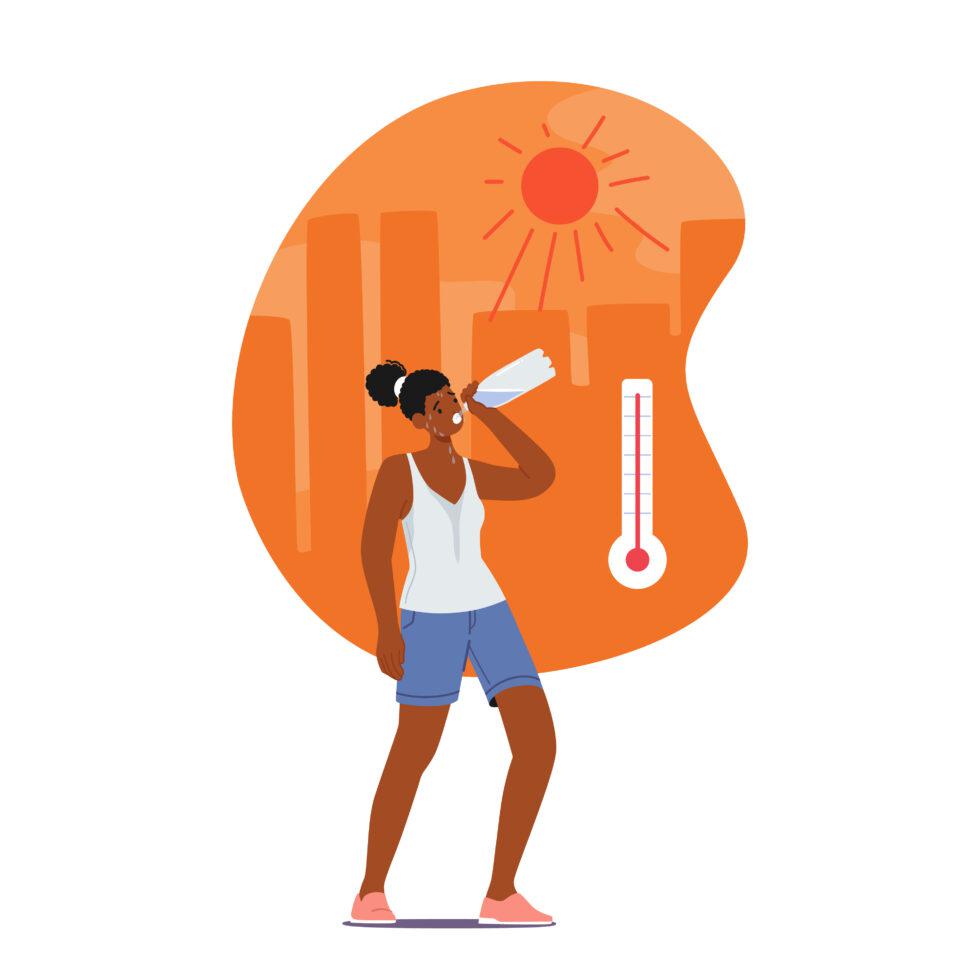
Everything you need to know about heat exhaustion & heat-related illnesses. Check into our urgent care today, no appointment needed.
Summer in Dalton means sunshine, hikes on the George W. Disney Trail, performances at Burr Performing Arts Park, pool days and plenty of time outdoors. But with all that fun comes a real health risk that often flies under the radar: heat exhaustion.
Heat-related illnesses can develop quickly, especially during our hot, humid Georgia summers, and if you don’t catch the early warning signs, heat exhaustion can escalate into a life-threatening emergency known as heatstroke.
Here’s what you need to know to stay safe in the heat, and how AFC Dalton can help if things take a turn.
What Is Heat Exhaustion?
Heat exhaustion is a heat-related illness that occurs when your body overheats, typically due to extended exposure to high temperatures and when combined with high humidity and physical activity. It happens when your body can’t cool itself fast enough through sweating, leading to dehydration and salt loss.
Left untreated, heat exhaustion can progress into heatstroke, which is a medical emergency.
Early Symptoms to Watch For
Spotting the signs of heat exhaustion early is key. If you or someone near you starts experiencing any of the following symptoms, it’s time to take a break and cool down:
- Dizziness or lightheadedness
- Weakness or fatigue
- Nausea or vomiting
- Heavy sweating
- Headache
- Muscle cramps
- Pale, cool or clammy skin
- Rapid but weak pulse
- Fainting
These symptoms may start off mild, but they can escalate quickly if the body isn’t cooled down or rehydrated.
Who’s Most at Risk?
While anyone can develop heat exhaustion, certain people are more vulnerable.
High-risk groups include:
- Young children and older adults: Less efficient at regulating body temperature
- People taking certain medications: Like diuretics, antihistamines, beta-blockers or antidepressants
- Individuals working or exercising outdoors: Landscaping, construction or even intense workouts
- People with chronic conditions: Heart disease, diabetes and obesity can all increase risk
- Those not yet acclimated to the heat: Especially, at the start of summer or after moving to the area
Even everyday outdoor activities like gardening, hiking or watching a baseball game can be risky if you’re not staying cool and hydrated.
Heatstroke vs. Heat Exhaustion: Know the Difference
One of the easiest ways to tell if someone is transitioning from heat exhaustion into heatstroke is to check their skin condition.
- In heat exhaustion, the skin is typically cool, pale and clammy
- In heatstroke, the skin becomes hot, dry or only slightly moist, and the body temperature rises to 104°F or higher
Other signs of heatstroke include confusion, slurred speech, rapid heart rate, seizures and loss of consciousness. This is a medical emergency, call 911 immediately.
Time is everything when it comes to heat-related illnesses. The sooner you catch the symptoms of heat exhaustion, the easier it is to reverse before it turns into heatstroke.
How to Stay Safe in the Heat
A few simple precautions can help you prevent heat exhaustion altogether:
- Drink plenty of water, even if you’re not thirsty
- Wear light-colored, loose-fitting clothing
- Avoid outdoor activity during peak heat hours (10 a.m. – 4 p.m.)
- Take breaks in the shade or air conditioning
- Use sunscreen, as sunburn increases your risk of heat illness
- Acclimate slowly to hot weather, especially early in the season
- Avoid alcohol and caffeine in extreme heat, as they contribute to dehydration
When to Visit AFC Dalton
If you’re dealing with symptoms of heat exhaustion that aren’t improving after rest and hydration, don’t wait it out. Come see us at AFC Dalton, we’re open seven days a week with no appointment needed.
Our experienced team can:
- Evaluate your symptoms
- Provide IV fluids if necessary
- Rule out more serious complications
- Help you recover comfortably and safely
We see patients every summer with symptoms of dehydration, heat exhaustion and in some cases, sun poisoning. Select staff members at our clinic are trained in IV hydration therapy, which can help you recover faster if oral hydration isn’t enough.
Don’t Let the Heat Catch You Off Guard
Enjoy your summer, but stay informed. By recognizing the signs of heat exhaustion early, you can protect yourself and your family from heat-related emergencies. Not sure whether it’s dehydration, sun poisoning or something else altogether, we’re here to help figure it out. AFC Dalton is dedicated to providing top-notch medical care all season long.